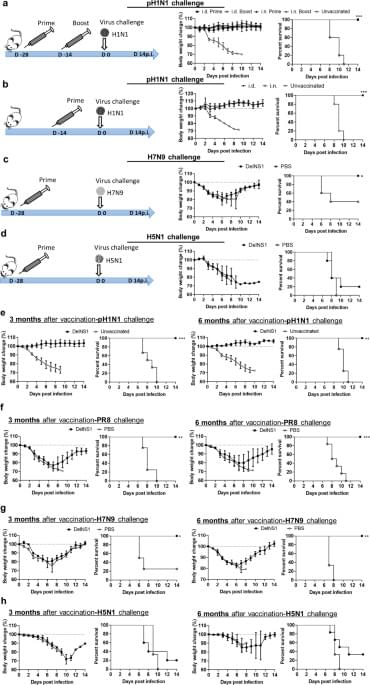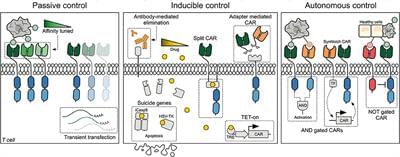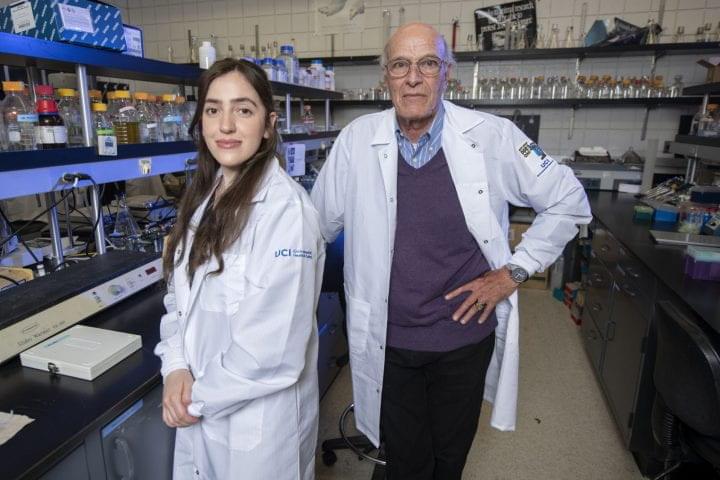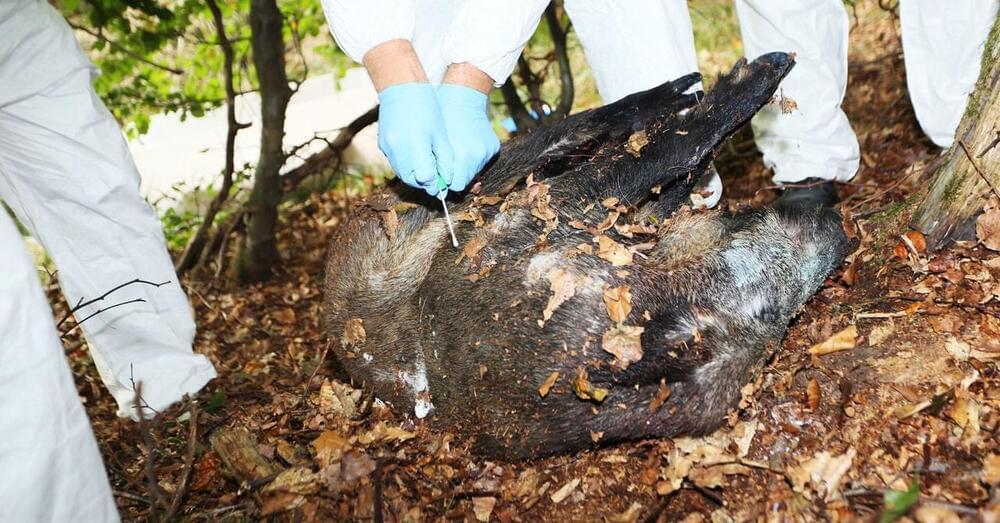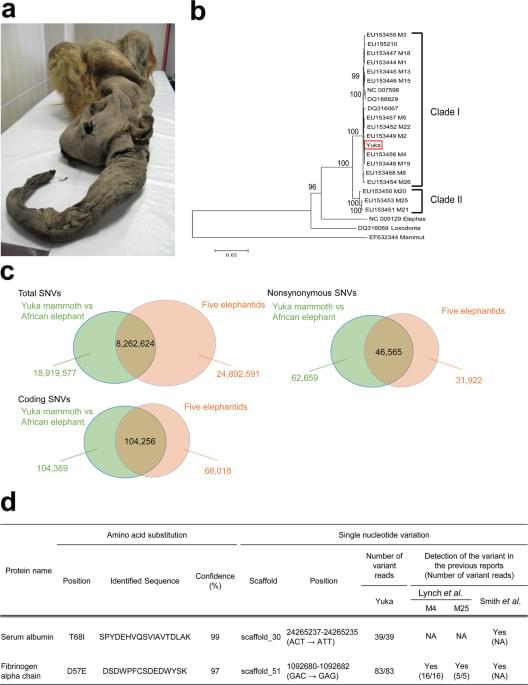Oct 12, 2021
Intradermal vaccination of live attenuated influenza vaccine protects mice against homologous and heterologous influenza challenges
Posted by Quinn Sena in category: biotech/medical
To test whether LAIV is effective via intradermal route, 106 plaque forming units (PFU) of DelNS1-LAIV was i.d. injected to multiple groups of mice. One of the groups was boosted with second injection at 14 days after the prime vaccination. Unvaccinated control mice were injected with the same volume of PBS. The mice were intranasally challenged with 10x LD50 of H1N1/415742Md at 28 days after primary vaccination. Both single dose and two doses of i.d. vaccination induced good protection with no weight loss and 100% survival after virus challenge (Fig. 1a). Comparing i.d. vaccinated mice with i.n. vaccinated mice, there was no difference in body weight loss or survival rate (Fig. 1a), which suggested LAIV i.d. vaccination offered the same protective efficacy as i.n. vaccination. Remarkably, a single dose of i.d. vaccination fully protected mice against virus challenge with 100% survival and no weight loss (Fig. 1b).
To test the broadness of i.d. vaccination-induced immunity, H7N9 (A/Anhui/1/2013m) or H5N1 (A/VNM/1194/2004) challenges were performed at 28 days after a single dose of i.d. vaccination. H7N9 challenge caused sharp weight loss and 60% death in PBS control mice, while the vaccinated mice were 3 days quicker in body weight recovery and had 100% survival (Fig. 1c). However, i.d. DelNS1-LAIV only rescued the survival rate to 20% among the H5N1-challenged mice, versus 100% mortality in the PBS group (Fig. 1d).
We then studied the longevity of i.d. DelNS1-LAIV-induced immunity by challenging the vaccinated mice at 3 or 6 months after vaccination. Firstly, homologues virus H1N1/415742Md challenge did not cause body weight loss, nor lethality 3 or 6 months after vaccination (Fig. 1e), suggesting the protective immunity lasted at least for 6 months; Secondly, all vaccinated mice survived against an antigenically different H1N1 strain (PR8) challenge and regaining body weight starting day 7 post challenge (7dpi) (Fig. 1f). All vaccinated mice survived after H7N9 challenge though with a similar degree of weight loss comparing to the PBS control mice (Fig. 1g). The immunized mice challenged by H5N1 at 3 or 6 months had 30% and 20% survival, respectively, with a similar degree of weight loss comparing to the PBS controls (Fig. 1h).
